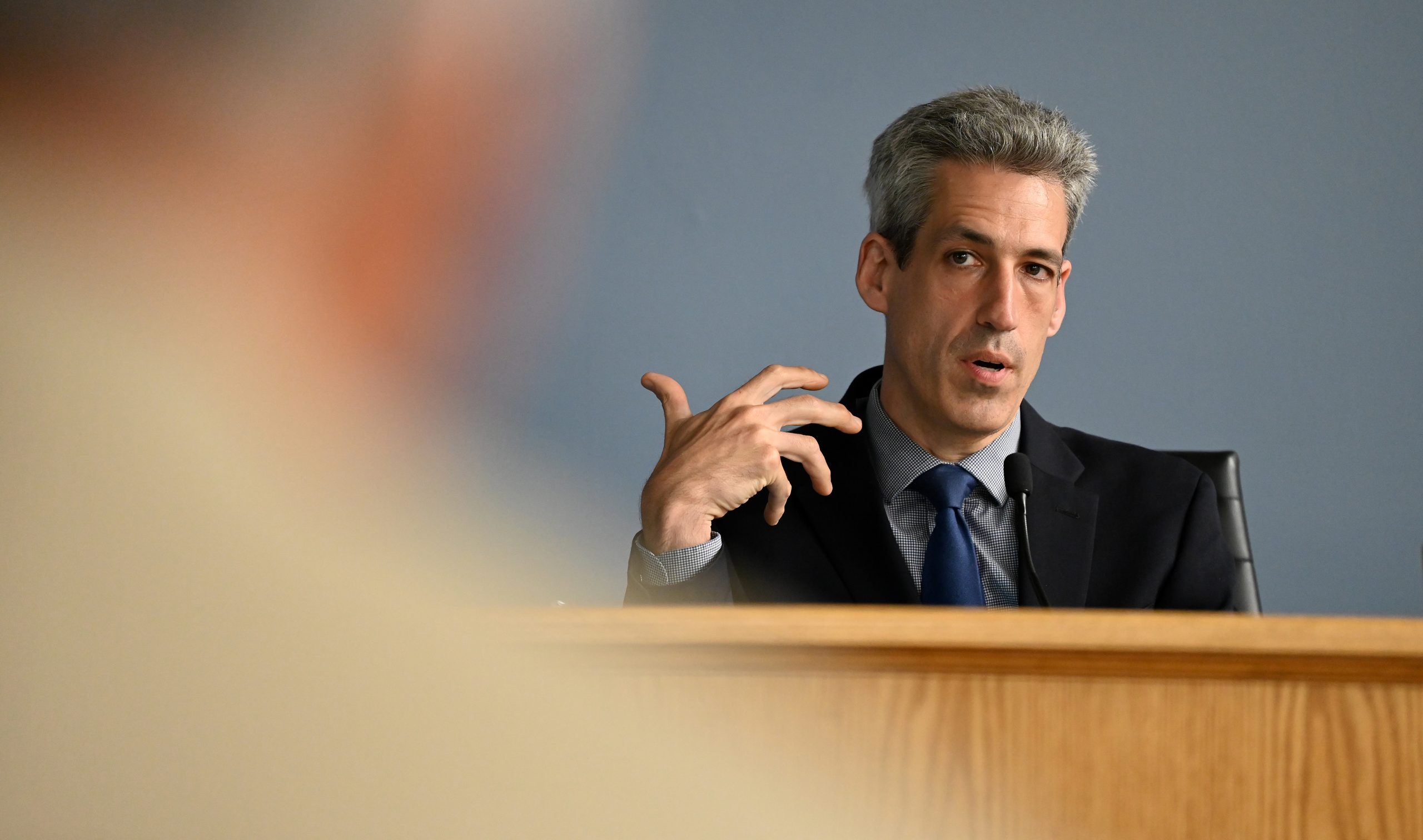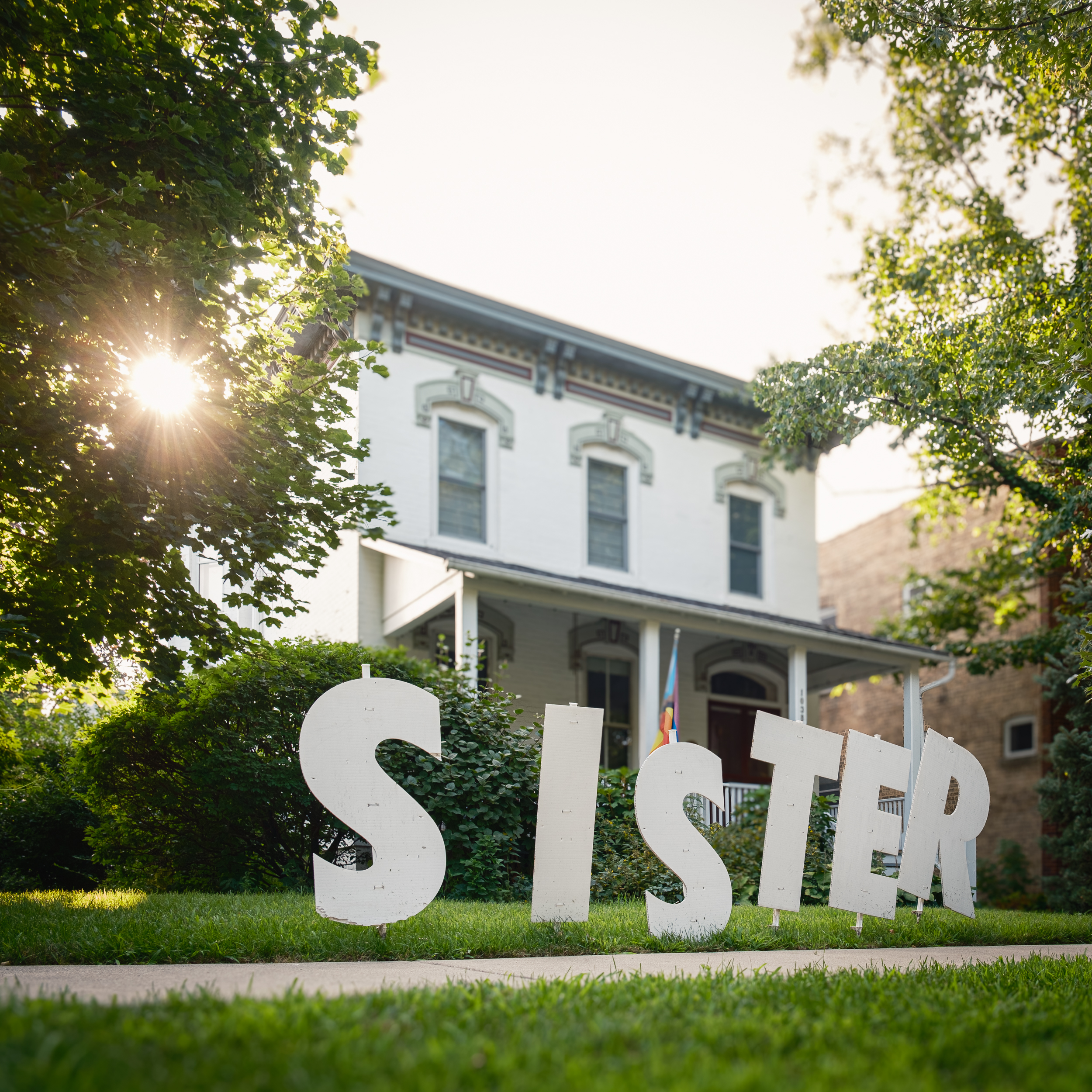Reparations Committee members took feedback and answered questions from community members for over 90 minutes at Thursday morning’s listening session.
Residents attended in person at the Morton Civic Center and virtually via Zoom.

The committee announced it has been in contact with Northwestern’s Buffett Institute for Global Affairs as part of a reparations project. The institute focuses on international affairs and how to solve global issues and gives scholarships and grants to international students.
The institute now is looking at the truth and reconciliation process in South Africa and including Evanston by making resources available for city projects on community education, outreach and listening, according to the committee. As the project develops, more information will be on the Reparations Committee website.
At the meeting’s start, one resident inquired about how much money will be coming from cannabis tax revenue and from the city.
The initial $10 million promised for reparations was to use cannabis sales tax revenue, but that money has been slower to materialize due to the lack of a second dispensary that was initially expected to open in the city. Another is expected to open in September.
However, there is a new source of revenue for the program through the city’s graduated real estate transfer tax on properties over $1 million that are sold.
Tasheik Kerr, assistant to the city manager, said $1,188,000 in revenue has been generated so far.
Full funding expected
The city expects to be able to fully fund the ancestor group for this year. Sixteen ancestors have received disbursements and an additional 90 people have been identified as qualifying ancestors. Three city staff members have been making home visits to those 90 ancestors.
One virtual attendee asked about the legality of the program after the U.S. Supreme Court ended affirmative action programs. Corporation Counsel Nicholas Cummings noted the program is not an affirmative action program or related to college admissions.
“But beyond that, the program has always been designed to try and withstand the highest level of scrutiny by the Supreme Court, which is strict scrutiny. I’ve had various public open battles with various members of this committee about that,” Cummings said. “It’s no secret that we try to make sure that even though Evanston has tried to offer restorative justice to a very specific group, it has always been based on a compelling interest of the city and the program has been designed to be narrowly tailored to address that specific harm. So I don’t believe that the Supreme Court’s decision regarding affirmative action will impact Evanston’s work at all. However, for now, that’s yet to be determined. I guess we will see.”
Freedom plan
Longtime Evanston resident and civil rights activist Bennett Johnson talked to the committee about his “freedom plan.” It includes a real estate investment trust, a venture capital organization and nonprofit organizations that deal with health, medical bills, education and welfare. All of these would be independent from the city with their own boards, according to Johnson.
“I believe that [Evanston is] doing the same thing that we’ve done in the past, downgrading the ability of Black people to do things for themselves,” Johnson said. “We could realize that if we don’t let Black people control this, we [are] still doing the same thing that we’ve done in the past.”
He also felt that the 1969 year cutoff for people to qualify for the program is “totally arbitrary” as Black people were still being “discriminated” against and “hurt.” Johnson also said the amount of grant money is too little.
A Reparations Program disbursement update as of July 6 reports that city staff have met with 47 ancestors and discussed with them the restorative housing program benefits. Ten recipients decided to take additional time to make a decision. The breakdown of the applicants’ selections is eight cash benefit, 13 home improvement benefit, 10 mortgage assistance, no down payment, four mortgage assistance and home improvement benefit, one mortgage assistance and cash, one home improvement and cash benefit.
The city projects ancestor group decisions to be completed in August or early September.











Questions about reparations:
Why should a recent immigrant be obligated to contribute to reparations? As someone who recently immigrated to the USA from a country that had nothing to with slavery or jim crow in the usa, why be obligated? Example as an Finnish national immigrant. My family tree can’t be traced to the usa, and my family never gained American white privilege. Exactly, where did i gain american historical privilege, when im the first of my family to set foot in the usa? Correct my thoughts if you feel i am in error.
Sincerely,
Frank